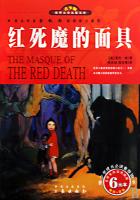This transition from municipal to territorial policy in Germany is most clearly shewn in the matter of the raw material for its most important industry, to wit wool. When the crisis began for the German cloth-manufacture, - as foreign competition became more and more serious, as the local industry, which was carried on everywhere, began to decay and its place to be taken by a more concentrated business confined to places peculiarly well suited for cloth-****** (1450-1550), - the towns tried at first to render the export of wool difficult or to regulate it for the benefit of the home industry.(25*) The impracticability of such a local policy soon shewed itself. Thereupon the Empire itself made a fruitless attempt to prohibit the export of wool (1548-1559); but soon abandoned the matter to the larger territories. Wurtemberg, Bavaria, Hesse, Saxony, and Brandenburg then tried by repeated laws and ordinances to hinder export for the benefit of the home producer; and not only that, - even the importation of cloth was partially forbidden. The wool trade and soon afterwards the cloth industry of the whole country received a territorial organisation. We have no space here to give an account of the efforts of Brandenburg in this direction; they begin as early as 1415 and 1456, and end with the famous wool laws of 1572-1611, which, however, disclose to us only a part of the manifold struggles and endeavours with regard to the matter which marked the period.(26*)Behind all the efforts I have described lay the conception that the territorial trade, the territorial industry, and the territorial market formed a united whole.(27*) All the regulations already mentioned, however, did but touch, one after the other, particular groups of people. The currency system, on the other hand, touched the whole body of the prince's subjects.
The transition from a municipal to a territorial currency in Germany likewise belongs to the period from the fifteenth to the seventeenth century, and is one of the most important, and yet one of the most obscure, parts of the constitutional and economic history of the territories. The course of the development, as it appears to me, after the extensive, but by no means complete, study I have made of it, I may briefly sketch as follows:
With the imperial right of currency and a uniform imperial standard for its theoretic bases, there had, as a matter of fact, grown up in the course of the twelfth, thirteenth, and fourteenth centuries a system of altogether local currencies. These, however, were not put into a decent condition, either from the technical, the financial, or the economic points of view, until they passed pretty generally out of the hands of the princes, and under the authority or control of the towns. It was the towns and their markets that needed most urgently a well regulated and stable currency; they it was who got rid of the ceaseless depreciation that had hitherto been common; to them was due "the perpetual penny" (der ewige Pfennig), - in Brandenburg, among other places, for there, also, the currency (by the help of Bismarck's ancestors) passed over to the towns. It was the town money, that of Lubeck, Brunswick, Erfurt, Nuremberg, Halle, and other places, that was, for the time, the most satisfactory. The towns were rich enough to coin abundantly, and were intelligent enough to understand the evil results of a badly managed currency, and the harm that flows from fiscal trickery.
But this whole movement could last only as long as traffic was mainly local, and also scanty. "The penny is only taken where it is struck" (der Heller gilt nur, wo er geschlagen ist) was a legal proverb in the Middle Ages; all strange coins, even those from the nearest town, had to be taken to the exchanger or Hausgenosse, who sat at his table in front of the mint, and there exchanged them for new coins of the place. But this rule became hardly practicable in the fourteenth century and quite impracticable in the fifteenth. Every little currency-area was flooded with cheaper pennies by its neighbours, whenever they could manage it. The disadvantages of localisation began to surpass the advantages of a municipal currency; even the towns themselves entered upon a disgraceful competition as to which should debase the coinage most. Then followed numberless currency treaties between various towns and princes. Foreign coins of better quality, like the Italian and Hungarian gold gulden and the Bohemian groschen, forced their way in, and came to be treated as a kind of universal currency as contrasted with the changing and usually bad small coins of each particular place.
The German kings and emperors did indeed seek to create some sort of uniformity of currency - at any rate in the southwest:















